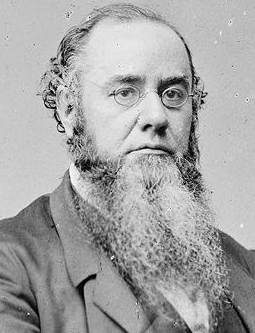Boston [BCF]
April 8,1863Dearest Mother,
Your note, enclosing Uncle George’s, arrived to-day. I hope you will get over your idea that I was so annoyed with your letter. I knew very well that you would not be in favour of our marrying now, and was not disappointed or annoyed. I assure you that’s the truth. The Governor is very anxious to get us away in a month. He has given up the notion of sending off part of the regiment; and Stanton telegraphed yesterday, that he should by no means do anything that would injure the progress or completion of the regiment. Mr. and Mrs. Haggerty seem to have changed their mind about the marriage. I really should feel very much dissatisfied, if I went away for an indefinitely long time—as I shall — without having it all settled. Don’t feel uneasy about its keeping me from my work, dear Mother; I am sure it will not. Annie wants us to go to New York and be married in church, and very privately. Do you know if there is any publishing of banns (or whatever you call them) required by law in New York?
Your loving Son
p.s. — The Governor says General Wool wants us to go through New York, and promised to have all the troops in the harbour up, if there were danger of any row. I told him (the Governor) that if they would warn innocent people to stay at home, we should be happy to handle any New York mob without  assistance, whereat he laughed very much. I don’t think I ever heard a jollier laugh than his. He is in New York now, and I hope you will see him.
[1863-04-08] Defences of Charleston.


